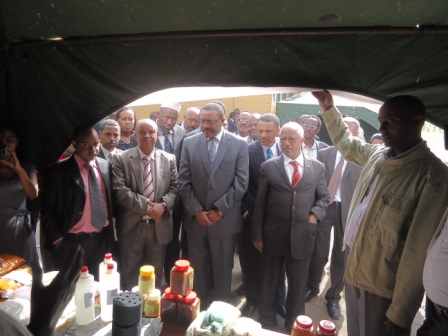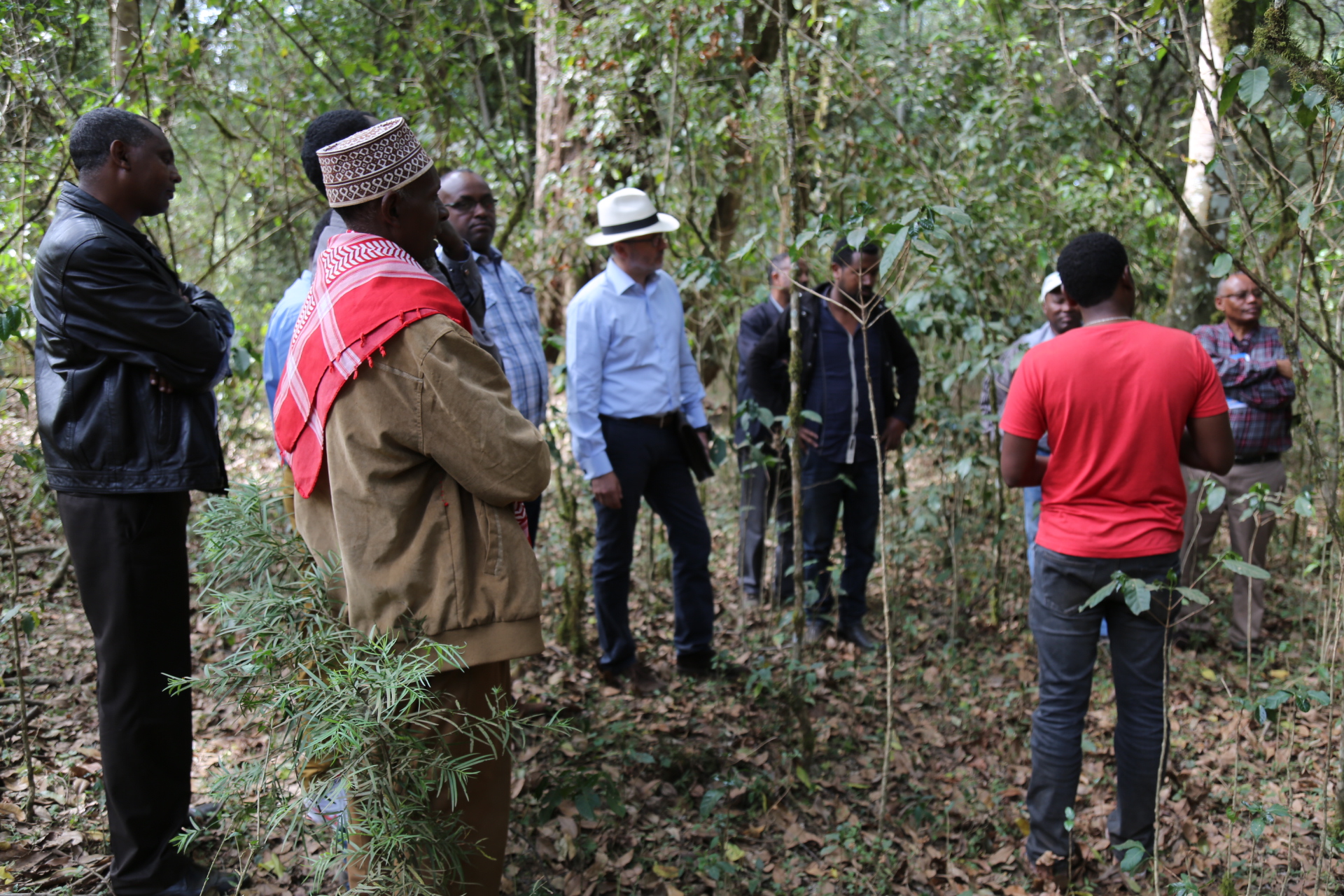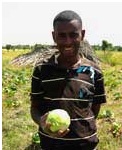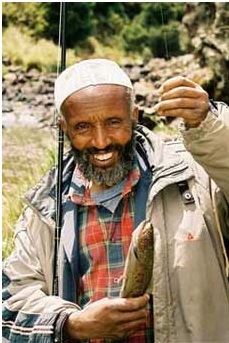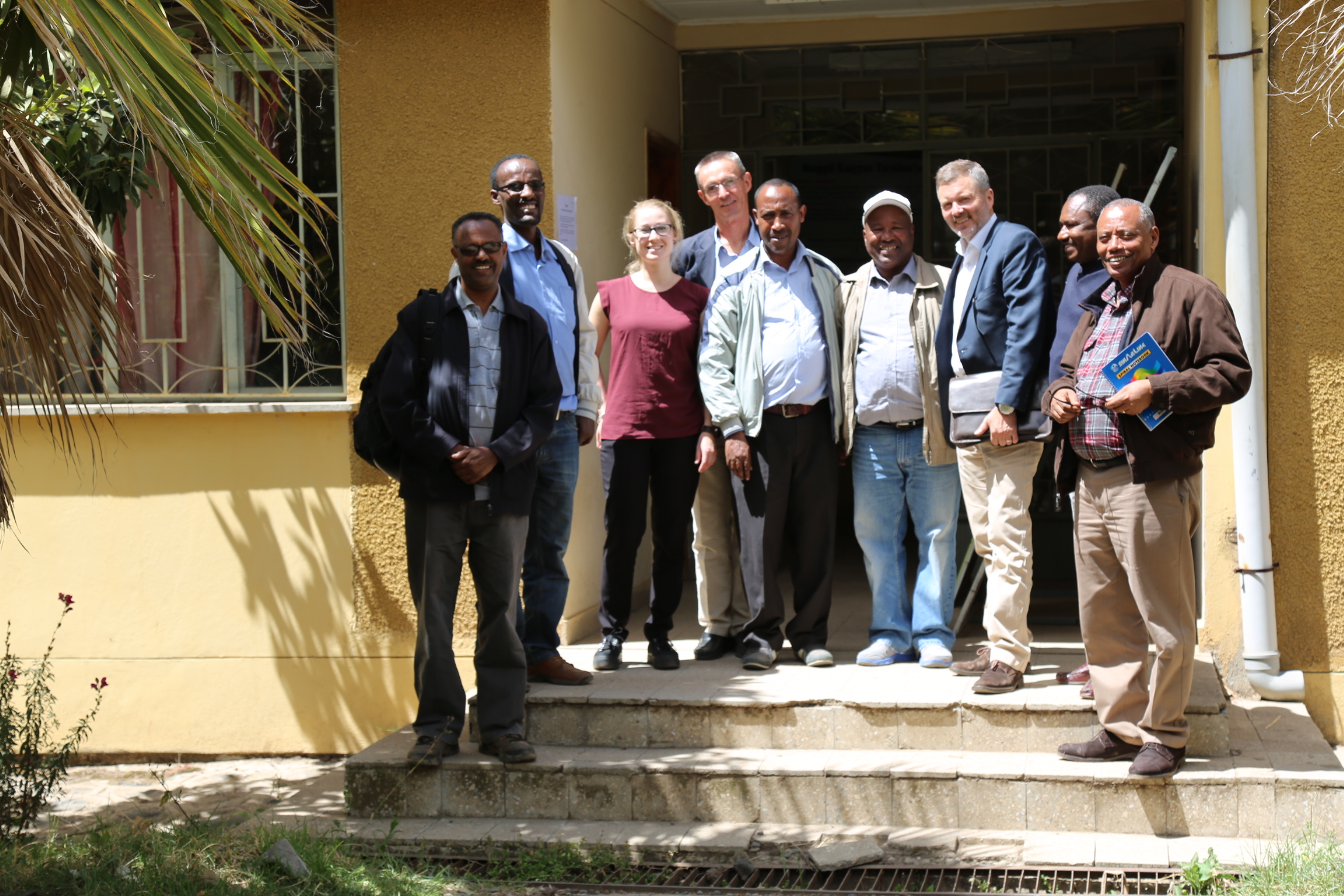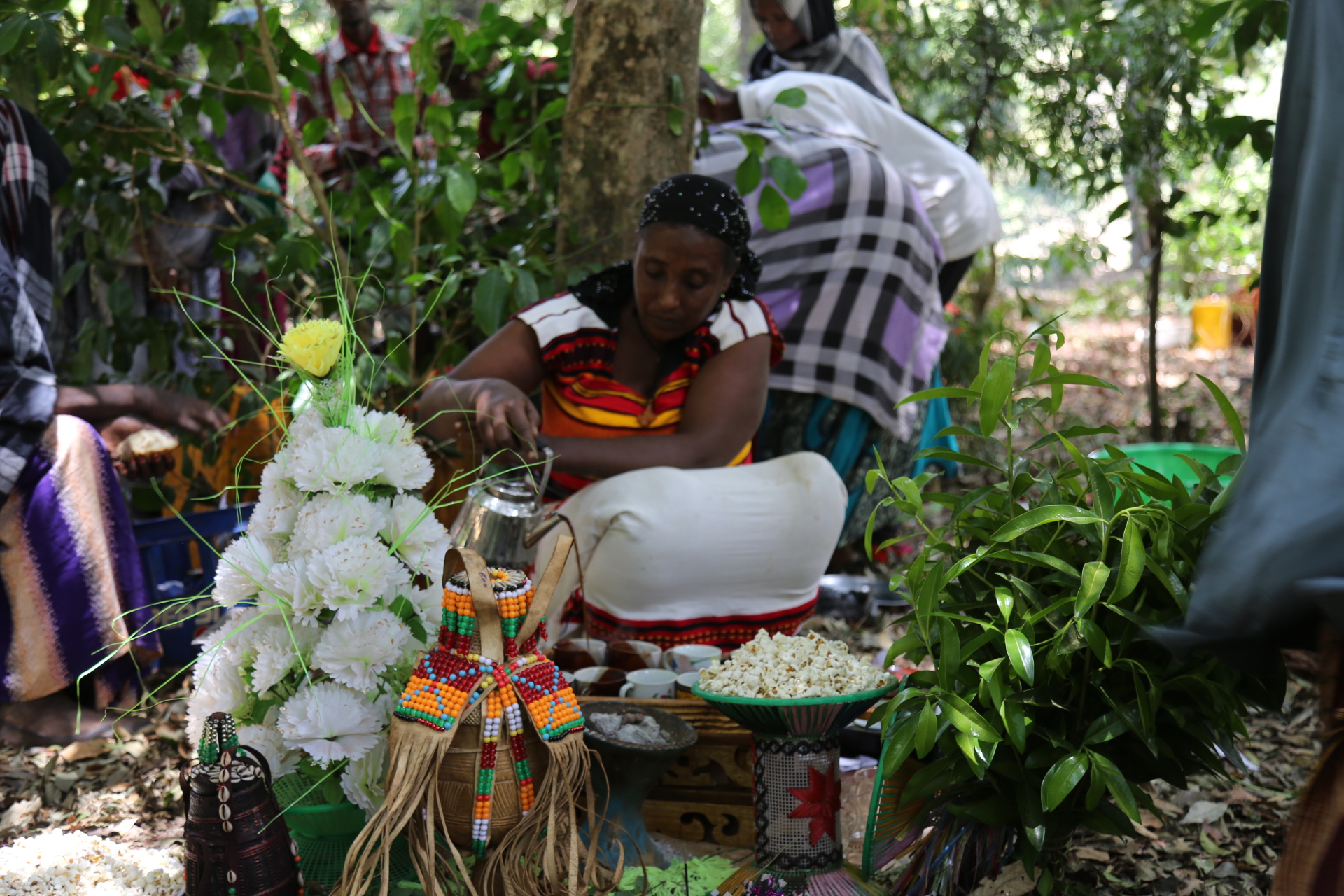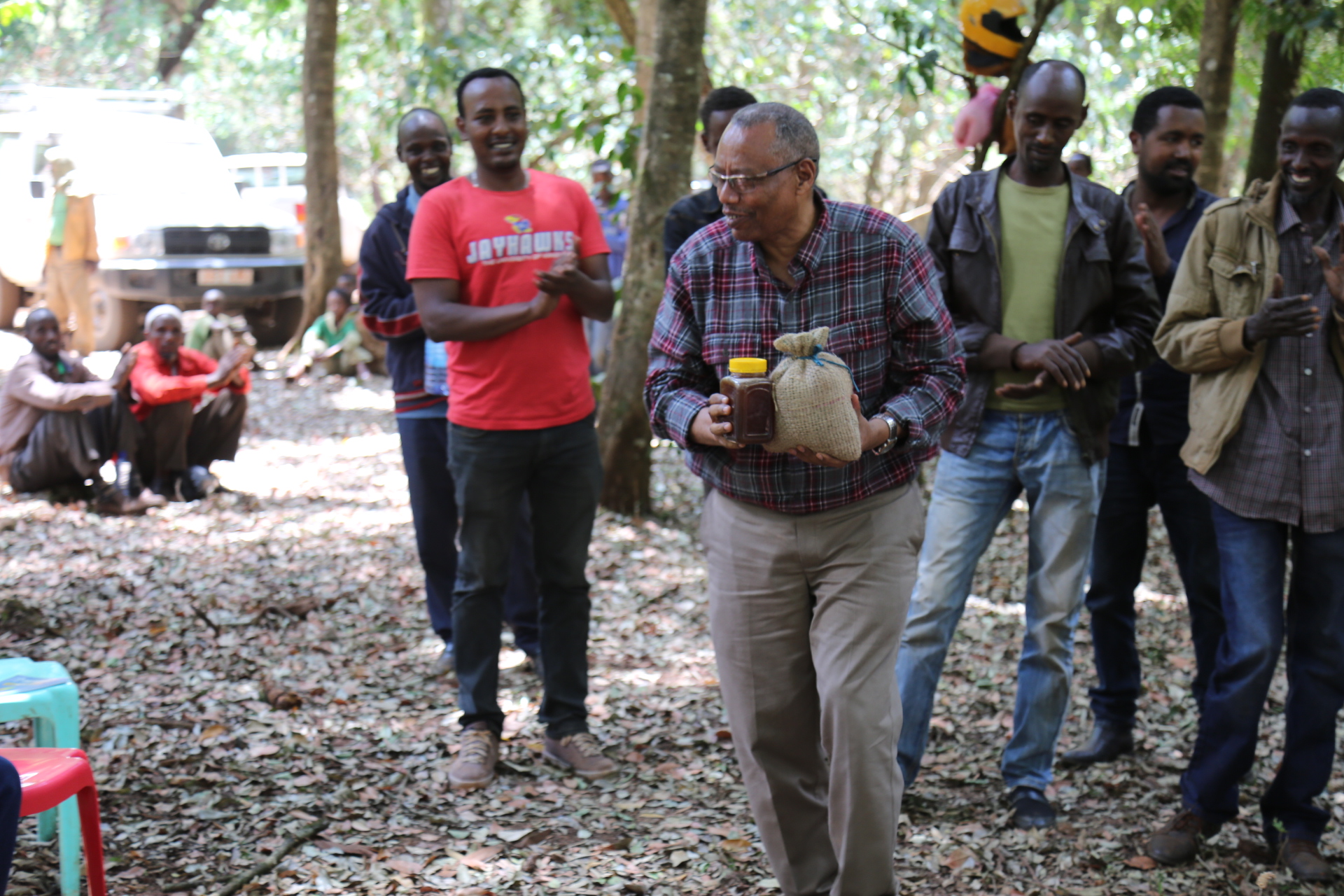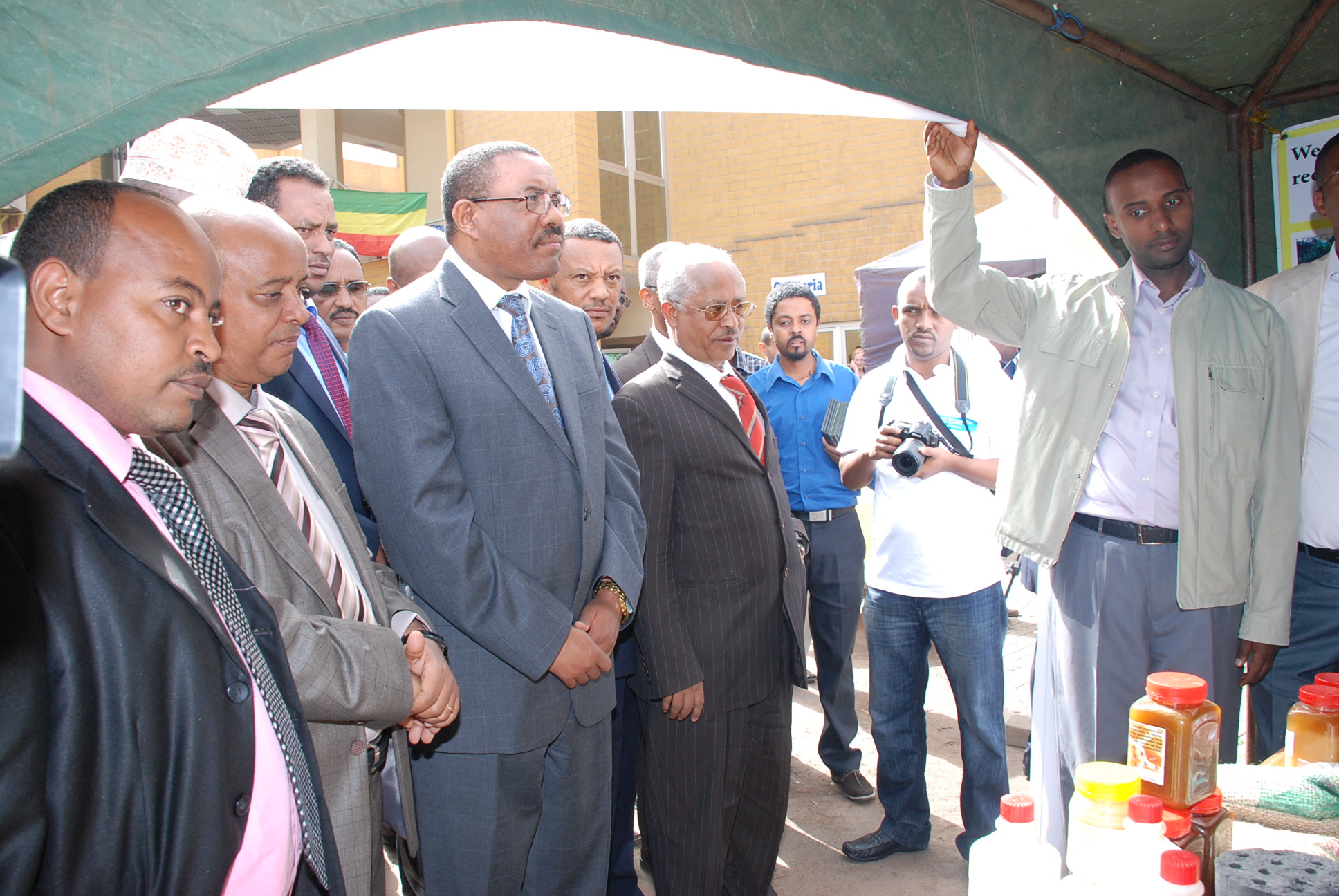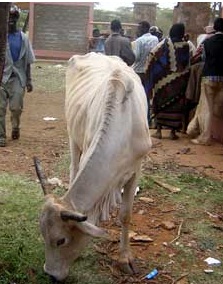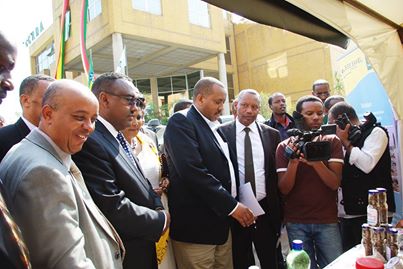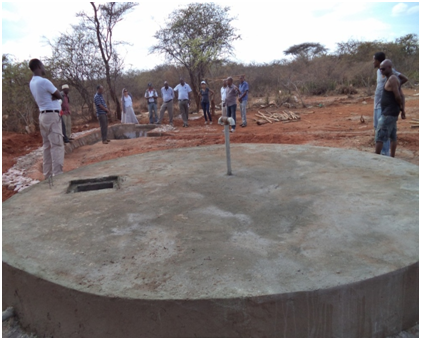Completed projects
.1.Bale Eco-Region Sustainable Management Programme (BERSMP)
A joint venture of FARM-Africa and SOS Sahel Ethiopia, the BERSMP brings several Bale Massif communities into a central role in sustainably managing their region's unique biodiversity and ecology. The project also enhances the social and economic well-being of various communities dependent on the Bale Massif's natural resources.
BERSMP activities began in 2006 and cover an area of approximately 22,000 Km2.This project will phase-out at the end of 2011 and, by this time, local institutions and key relevant offices will have the capacity to sustain the results of the program in the long-term.
The BERSMP is currently providing training courses to local officials inParticipatory Forest Management (PFM), Geographic Information Systems (GIS), business skills, carbon trading, and eco-region planning. It has also established the BaleWild natural products brand, and developing and promoting Trout Sport Fishing as well as sustainable trout fish farming.Furthermore, the BERSMP is fighting climate change by promoting the introduction of improved fuel-saving stoves.
The project is organizing community-to-community exchanges and is currently providing internship opportunities to 22 young women who, while continuing their studies, will gradually see an increase in their programme implementation role.
The BERSMP is funded by:
2.Building Resilient Pastoralist Communities (BRPC)
The Building Resilient Pastoralist Communities (BRPC) works to build the resilience of pastoralists in the Borana Zone by improving access to inputs, services and output markets. The Borana Zone of south Ethiopia is home to a huge livestock resource; however, poor productivity and limited access to fair markets are obstacles to the income and food security of this region's vast pastoralist population.
The main objectives of the project are:
- Increasing the production and marketing of livestock and livestock products
- Empower asset-poor community members to diversity their livelihoods, and generate more income.
Since beginning in January 2010, the BRPC project enabled the construction of four milk collection centers, which are now linked to credit services. A stakeholder dairy product promotion forum was organized, while dairy cooperatives were given training to strengthen their capacity and to establish well-functioning structures in order to compete in national and global markets.
Over the project's life-time, other innovative activities were implemented inorder to reach the BRPC's agenda, such as:
- the conduct of abaseline survey of the target communities
- the establishment of communal grazing reserves and the provision of fodder seeds in various communities
- the promotion of crop residue as an alternative source of feed during drought seasons
- the rehabilitation of four traditional water sources
- the provision of rangeland management training for members of dairy cooperatives
The BRPC has also raised community awareness on the benefits of sustainable harvesting and production of selected natural products, organized natural product harvesters into business cooperatives, and facilitated their legal certification.
The BRPC is funded by:
Trocaire
The seriousness of the present drought in Borana has made the Disaster Risk Reduction II (DDR II) a critical project aimed at saving human and animal life. This emergency project, which launched in March 2010, is currently increasing the access to safe drinking water for a minimum of 12,444 houseolds (74,664 men, women and children) and is protecting the livestock of approximately 2,400 households through targeted emergency livestock protection programs.
Basic food and non-food items are being distributed to approximately 5,600 households (33,600 men, women and children) through the implementation of cash-for-work schemes to construct water infrastructure, reduce soil erosion and rehabilitate livestock pastures.
The targeted communities are involved in each stage of the project cycle and the resident Pastoralists Associations (PAs) are being strengthened in order to effectively manage water supplies during and after the project's life.
The DDR II is funded by:
3.Ensuring smallholder producers in Ethiopia achieve sustainable and fair access to pepper and bee product markets project
The project is developed to directly benefit 1,200 beekeepers and 1,600 pepper-growing households in the Jabitehnan, Dangila, Lay Armachiho and Dembia woredas of the Amhara region of Ethiopia.
Activities based on the project's objective include:
- creating market opportunities for pepper and bee productive
- enhancing the technical, administrative and managerial capacity of beekeeper cooperatives
- providing further technical knowledge to pepper growers
- strengthening honey collection and processing centers by providing them with credit, and linking them to sustainable markets
- strengthening the apiculture resource centre as well as the Zembaba Beekeeper Cooperative Union
- undertaking research and networking activities
This project is funded by:
4.Rural Agricultural Productivity Improvement and Development project (RAPID)
The Rural Agricultural Productivity Improvement and Development (RAPID) project is designed to bring measurable improvement to the food security of 6600 households in the Kacha Bira, Lanfuro and Shashogo woredas of the Southern Nations and Nationalities People's Region (SNNPR) of Ethiopia.
Faced with the challenge of soaring food prices, RAPID supports farmers to generate income both from crop-farming and livestock rearing. RAPID also builds the capacity of local institutions, community organizations and the private sector.
Two main intervention methods are used in the RAPID project: the Prosperity Realized through Irrigation and Smallholder Markets (PRISM), which enables smallholder farmers to become entrepreneurs by transforming their resources in a sustainable manner, and the Watershed Management approach. Both approaches are based on short-term interventions designed to yield long-term impacts.
This project is funded by:
co-financed by:
IDE Ethiopia and SOS Sahel Ethiopia
5.Smallholder Livelihoods Improvement Project (SLIP)
A joint initiative by SOS Sahel Ethiopia and International Development Enterprise (IDE), the SLIP was launched in September 2006 and will be phasing out in 2011.
The aim of the SLIP project is to improve the food and livelihood security of smallholder households in three target communities: Awassa Zuria in the Sidama Zone, and Meskan and Mareko in the Guraghe Zone of the SNNPR.
The SLIP introduced and adopted the Poverty Reduction through Irrigation and Smallholder Markets approach, which enables smallholder farmers to become entrepreneurs by transforming natural resources (land and water), human resources (labour and skills), and agri-inputs into high-value agricultural products. In turn, these agricultural products can be marketed at economically rewarding prices.
Furthermore, the introduction of Affordable Micro-Irrigation Technologies (AMITs) in the target communities has increased the productivity of smallholder farmers, and has enabled their integration into the market system.
The SLIP project is funded by:
6.Engendering Change: Value Chain Empowerment Through Women-Led Initiatives in Pastoral Communities of Borana
The objective of this project is to advance the position of women in the pastoral communities of Borana through women-led development of natural resources-based products.
The project addresses both the strategic and economic needs of pastoralist women in Borana, through the Value Chain Development of Non-Forest Timber Products (NTFPs), and by improving the production, collection, processing, value addition and marketing of NTFPs.
Two major outcomes are expected from the project: first, it will strengthen 3existing women-led pastoral enterprises and will establish an additional three. Secondly, the project will build the capacity of the local value chain actors.
In addition, new and feasible value chains will be assessed, providing opportunities for a better income, as well as increased effective management.
The project also works towards influencing legal frameworks and policy environments to assist pastoralist womens' participation in the natural resource-based product marketing.
This project launched in April 2009 and is reaching 700 women-headed households (approximately 3,500 household members) in Adegalchat and Elwaye villages in Yabello woreda, Borana zone.
This project is funded by:
7.Koisha Smallholder Wealth Creation Program
SOS Sahel Ethiopia began its first operation in Ethiopia in the Koisha district of the Southern Nations and Nationalities People's Region (SNNPR) in 1989. As part of the Koisha Smallholder Wealth Creation Program, training on theFarmer Led Integrated Watershed Management (FLIWN) approach was provided for regional and local government departments.
The program created gender and HIV/AIDS sensitive seasonal employment, then known as Employment Based Safety Net (EBSN,) for vulnerable households.
The program also enabled small farm households to increase agricultural production of high-value crops, to generate alternative sources of income, and to improve their access to water.
Furthermore, the Koisha Smallholder Wealth Creation Program piloted and supported the institutionalization of social protection mechanisms through various associations. As a result, the majority of smallholder farmers have diversified their farm income.
In keeping with SOS Sahel Ethiopia's core values, lessons on farmers' soil fertility management in Koisha, and the effectiveness of poverty reduction schemes have been documented, published and disseminated within the country.
The Food Security Capacity Enhancement Programme built the capacity of decentralized government structures in order to respond effectively to local needs and to strengthen the ability of local communities to manage their own development initiatives.
Key impacts of the program were:
- the strenghtening of local partners' capacity to implement Productive Safety Net Programmes
- the improvment of agricultural productivity, the diversification and the increase of incomes from on-farm and off-farm activities
- the development of local social protection mechanisms and best-practices in food security programming.
The CIP has enhanced the social and economic status of women, and addressed the social exclusion of marginalized groups by enabling discriminated groups to fully engage in local development.
10.Borana Collaborative Forest Management Project(BCFMP)
The BCFMP helped transform conventional, government-led natural forest management into a Participatory Forest Management (PFM) approach, enabling local people to secure their resource rights. For the local communtities, involvement in the PFM process was their first real experience of ownership of a development process.
PFM has become a strong incentive for the local people to protect the forest on which their livelihoods depend.
A PFM manual developed by the programme was adopted by Ethiopia's regional and federal governments. In addition, SOS Sahel Ethiopia and FARM-Africa, in collaboration with other stakeholders, organized an International Conference on Participatory Forest Management, Biodiversity and Rural Livelihoods in Africa in March 2007 which brought together prominent figures from academic, development and policy circles in Africa.
The BCFMP has made a significant contribution to changing the view that pastoralism is damaging to the Ethiopian environment.
11.Pastoral Livelihood Initiative Drought Cycle Management
NGOs which received support in these aspects included:
Save the Children US
Save the Children UK
Lay Volunteers International Association
Pastoralist Concern Association Ethiopia
Ogaden Welfare and Development Association and GAYOPastoralist Development Initiative.
12.Gender and Pastoral Development Action Research Programme
The Gender and Pastoral Development Action Research Programme worked towards a better understanding of gender and manners in which to work with NGOs, government and partners to help communities make better decisions about their future, and encourage them to demand more from development service providers.
Implemented in four pastoral communities, some of the program's activities included:
- conducting youth forums
- women's enterprise training
- exchange and learning visits within the country
The Smallholder Apiculture Development: Bee Products Trade Promotion Programme was born out of more than a decade of experience in Meket Woreda, Amhara Regional State, in developing technologies and participatory approaches to improve the livelihoods of smallholder farmers.
The programme promoted the production of high quality bee and wax products, as well as the linkages of small producers to domestic and international markets.
The project organized and legally registered six beekeeper cooperatives, and one union was created and linked to credit facilities. Top-Bar hive technology were adapted for these coooperatives, which in turn dramatically improved honey production by reducing harvesting time and by increasing the quantity of honey traditionally produced (5-8 kg per hive) to 30-40 kg per hive.
High quality processing, packaging and transportation techniques have added value the the honey products, and the marketing cooperatives are proud owners of the Amar organic honey brand. Market surveys have shown there is a promising opportunity for Amar honey to become a valuable international export.



